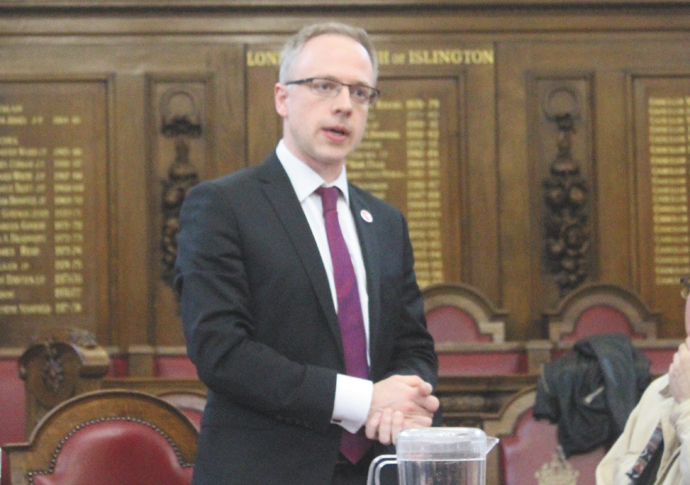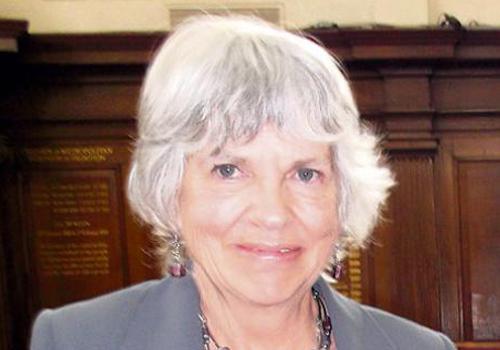Vulnerable could face brunt of care cuts as virus hits budget
Fears for elderly and disabled as Islington Council suffers funding ‘black hole’
Friday, 15th May 2020 — By Sam Ferguson and Calum Fraser

Town Hall leader Councillor Richard Watts: ‘The government must come good on its promise to do ‘whatever it takes’ to fund the care our friends, family and neighbours rely on, now more than ever’
BUDGET cuts will hit the elderly and disabled as Islington tries to plug a financial “black hole” caused by the coronavirus, the Town Hall leader admitted this week.
The crisis has already devastated care homes and exposed a fractured social care system which is meant to be part of the safety net supporting the vulnerable.
But the situation may get even worse for some of those who have suffered the most, with the council warning it will be faced with no choice but to make further cuts.
Town Hall leader Councillor Richard Watts said: “Councils across the country are by far the largest funder of adult social care. They now face a £10billion coronavirus black hole, forcing cuts across the board, indicating a £3.5bn cut to adult social care this year.
“The reality is that if the government does not fulfil its promise and close the gap then frontline services will bear the brunt and our most vulnerable residents will suffer.

Councillor Janet Burgess
“The government must come good on its promise to do ‘whatever it takes’ to fund the care our friends, family and neighbours rely on, now more than ever.”
The Town Hall has lost an estimated £40million due to the pandemic. Its bill for adult social care is usually around £90m a year.
Islington’s health chief, Councillor Janet Burgess, told the Tribune: “Social care is something that people don’t really think about until they need it. It’s like the NHS in that way – we take it for granted. Basically adult social care is for people who need support because they can’t cope on their own, because of illness or disabilities or general old age.
“We support a lot of people in their own homes with domiciliary care. This is when people go into the homes of the vulnerable, sometimes three or four times a day. They might get them out of bed, feed them breakfast, and come back to feed them lunch and dinner before putting them back to bed in the evening.”
Support for adults with learning disabilities costs roughly the same as elderly domiciliary care, while nursing and care homes cost around £1,000 a week per person.
Cllr Burgess added: “It’s really worrying to be facing these cuts. As I’ve just pointed out, we deal with the most vulnerable, frail and fragile people in our society. As it is, we’ve struggled over the last 10 years as the budget we get hasn’t kept up with demand.
“I just don’t know where we would start to make these kinds of cuts in adult social services. It’s extremely worrying.”
The social care crisis had already been a simmering issue for several years as prime ministers Theresa May and Boris Johnson made promises to tackle the issue in their election manifestos.

Chancellor Rishi Sunak (above) admitted this week that the UK faces a “significant recession” as borrowing could rise to more than £300bn this year.
A spokesperson for the Ministry of Housing, Communities and Local Government said: “We’re giving councils an unprecedented package of support, including £3.2bn emergency funding, to tackle the immediate pressures they have told us they’re facing. This is on top of English councils’ core spending power rising by over £2.9bn this financial year and today we announced a further £600m to help reduce the infection rate in care homes.
“The government will continue to work closely with councils as the pandemic progresses to develop an ongoing assessment of costs as they support their communities through this national emergency.”
The department also said councils will be allowed to defer £2.6bn in business rates payments to central government and that they were paid £850m in social care grants upfront in April.